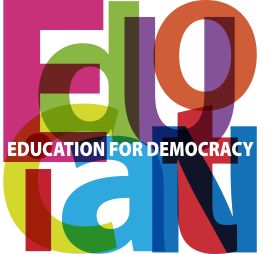Strengthening Democratic Citizenship Education in Albania


The project “Strengthening Democratic Citizenship Education in Albania” is implemented by the Council of Europe (CoE) and funded by the Swedish International Development Cooperation Agency (Sida).
The Ministry of Education, Sports and Youth of Albania (MoESY) is the main partner in the implementation of the project.
What do we want to achieve:
- To improve the quality of education in Albania by strengthening democratic citizenship education based on Council of Europe standards and practices.
Who will benefit:
- Education policy makers, school principals, teachers, students and school staff from selected pilot primary and secondary schools, local communities.
Timeline and budget:
- The project started in December 2019 and will be completed by 31 May 2026, with an overall budget of 2,259,699.00 Euros.
How we will do it:
- Building on previous Council of Europe cooperation activities in Albania, the project supports the on-going curriculum reform and the new education approaches, such as competence-based education and student-centered teaching methods.
The objective of the project will be achieved through a series of complementary measures targeting education policy and practice in the three areas of policy support, democratic school governance and teacher support:
1. Policy support
- This component will support a comprehensive review of democratic citizenship education in Albania to identify the opportunities and challenges for further aligning the national curriculum to Council of Europe standards and national policy objectives, as well as support the Ministry of Education, Sports and Youth to integrate the democratic development objective in the new National Strategy.
2. Democratic school governance
- This component will support 75 pilot schools in developing and implementing democratic governance policies and practices to create an inclusive and enabling learning environment for all students, focusing on areas such as digital citizenship, media literacy, safety online, fighting bullying, teaching controversial issues, and climate change.
3. Teacher support
- This component will enhance teachers’ professional competences, attitudes and practices so that they are better equipped to develop democratic competences in learners through e-learning, regional peer exchange, training and coaching events.
Year 1
Comprehensive review of education for democratic citizenship, support to the MoESY to establish a nation-wide Student Government, national conference on democratic citizenship education, selection of the first 25 pilot schools for inclusive and democratic school model, establishment of the school and teacher network, small grant scheme for CSOs, launching conference of the teacher networks etc.
Year 2
Support the MoESY to integrate the democratic development objective in the new National Education Strategy, summer schools for student representatives, competition of student-produced reportages, round 2 of CSO grant scheme and democratic and inclusive school model, annual forum for reflection and peer learning for participating schools etc.
Year 3
Regional conference on best practices in democratic citizenship education policy and practice, activities to strengthen students’ democratic competences such as peer learning, summer schools, competitions, round 3 of CSO grants and democratic and inclusive school model etc.
Year 4
Short documentary and publication on the best practices of democratic school governance for nation-wide dissemination¸ teacher trainings and seminars via E-learning courses for teachers on CoE Education Portal, peer-exchanges for teachers with a regional dimension, activities for students, final conference to disseminate the project results.
Reference Framework of Competences for Democratic Culture

For more information
Strengthening Democratic Citizenship Education in Albania - Council of Europe Office in Tirana (accessible in Albanian and in English)
Education in times of emergencies and crisis: EDURES piloting officially launched in Albania
Albanian Ombudsperson discusses with students on the importance of Democratic Citizenship Education
Remembrance in action: Albanian students and teachers visit the former prison Spaç
Education at Times of Emergencies and Crisis – next pilot to be launched soon
Teaching and learning resources distributed in the Albanian education community



